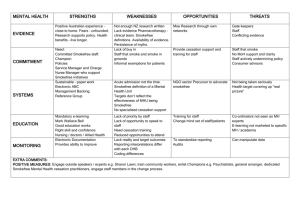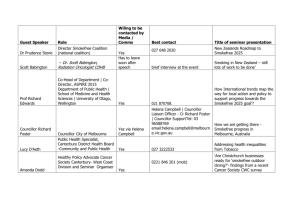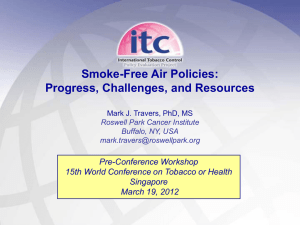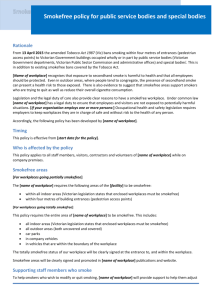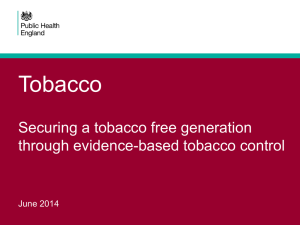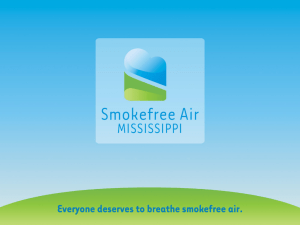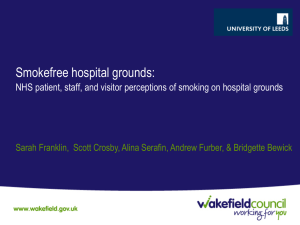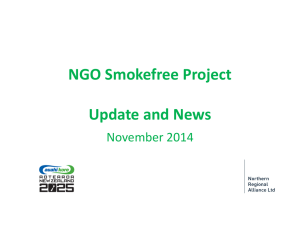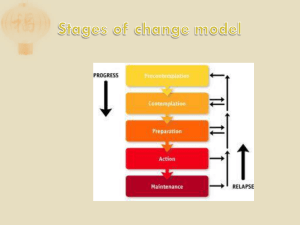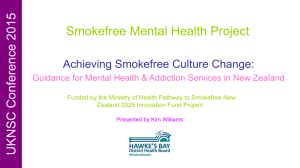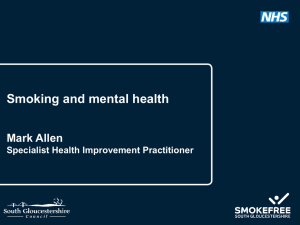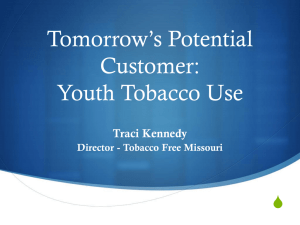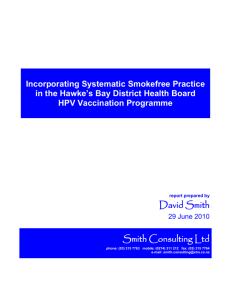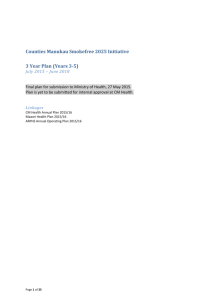Buchanan rehabilitation Service
advertisement
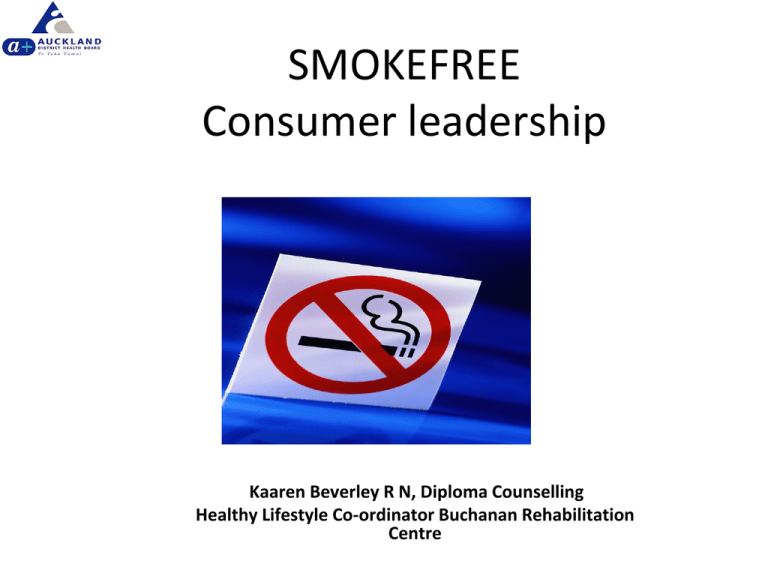
SMOKEFREE Consumer leadership Kaaren Beverley R N, Diploma Counselling Healthy Lifestyle Co-ordinator Buchanan Rehabilitation Centre Buchanan Rehabilitation Centre Specialist mental health, re-covery focussed inpatient service which provides assessments, treatment, and intensive rehabilitation combined with a high level of clinical support in a structured and positive environment Sub regional, 40 bed service Clients aged 16 – 65 Most young adults Average age 17-25 Severe mental illness Psychosis Co-existing disorders Why Smokefree Champion? Re-covery model consumer led process Fits with rehabilitation model of care and skill building Powerful voice and role model to breakdown smoking culture Opportunity to try new approach Literature review to facilitate ongoing research Engaging smokefree champions Awareness raising geared to age group Education on tobacco related harm Support to stay smokefree Survey demonstrated desire to be smokefree; (82% have attempted to stop) Peer pressure key smoking factor Discussion of issues e.g. seeking, trading Seeking solutions for behavioural issues with clients Supports for Smokefree Champions with Policy and Legal Drivers SFE Legislation workplace smokefree ADHB smokefree policy (buildings and grounds) BRC Tenancy agreement (Houses Smokefree) National Association of Mental Health Service Consumer Advisors Key Recommendations 1. Smokefree begins in outpatient / community settings 2. Consistency of practice 3. Therapeutic engagement and support is available in inpatient units Ongoing Processes Smokefree consumer champion team continually evolving (includes both smokers and non smokers) Consumer role defined by selves with regular support and supervision Access to smoking cessation clinic Rewarding those who respect each other by keeping smokefree site. Rewarding those clients that quit What Benefits to Clients? Clients that are smokefree leaving acute unit feel supported to remain smokefree Peer Support for clients who are quitting Promoting smokefree message on t shirts Clear message from champion that smoking harmful to health Promoting off site smoking Consumer team work Outcomes Modelling smokefree behaviour Record of smoking behaviours directs tobacco work to care team for supportive interventions Other clients keen to be smokefree champions Leads to clients problem solving smoking behavioural issues Where to from here? Consumer Smokefree Champion Team Skill building and access to training Strong voice to staff about smokefree service delivery Rewards and references for those involved in smokefree champion team Peer led smoking cessation model Champions say M says “that she has more money and feels healthier”. Being a smokefree champion keeps me smokefree R says “Smokefree is a good opportunity to keep healthy” “A wise way is the way to go…. Research Smoking Cessation and Serious mental illness; Snyder et al, Archives of Psychiatric Nursing, Vol 22,No 5 (October),2008;pp297304 Do social support interventions (“buddy systems") aid smoking cessation? A review; Sylvia May and Robert West,Tob Control 2000 9:415-422 doi 1136/tc.9.4.415 Peer counselling in schizophrenia; Patients consult patients, Kluge et al, Patient Education and Counselling 70(2008)357-362
